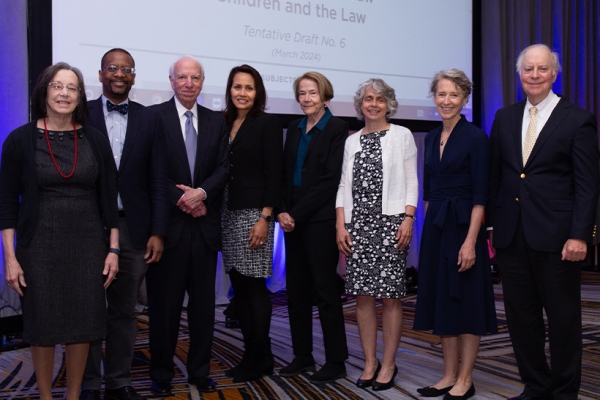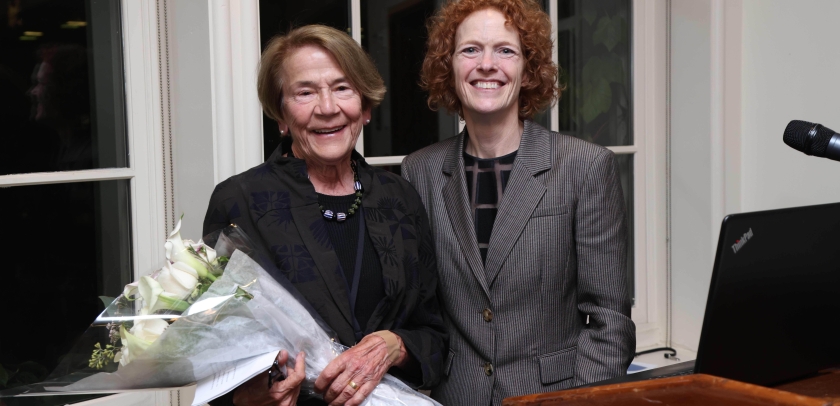Professor Elizabeth Scott’s Restatement on Children and the Law Approved by American Law Institute
Launched in 2015, the restatement is the first to comprehensively examine the legal regulation of children.
Professor of Law Clare Huntington ’96 (left) and Harold R. Medina Professor Emerita of Law Elizabeth Scott (right) at a 2023 ALI event in Scott's honor.
At its annual meeting on May 22, the American Law Institute (ALI) approved the Restatement of the Law, Children and the Law, a project led by Elizabeth Scott, Harold R. Medina Professor Emerita of Law, a pioneering scholar on children and the legal system. Professor of Law Clare Huntington ’96 served as an associate reporter.
The restatement covers issues such as parental rights and state intervention in cases of abuse and neglect; the rights of students and the limits of state authority in public schools; the rights and special protections of youth in both the juvenile and criminal justice systems, from police contact to dispositions and sentencing; and children as legal persons, covering free-speech rights and the authority of minors to consent to certain medical decisions, among other things.
“The law’s treatment of children has become very complex over the past several decades and has been in need of clarification,” Scott said. “The challenge we faced … was to find coherence in this evolving area of law and to capture beneficial law reform.”
While jurisdictions vary in their treatment of some areas of law, Scott said that she and her fellow reporters found a commonality that unifies the legal treatment of children: “Across the legal landscape, modern courts aim to promote child well-being,” she said. “In pursuing this goal, modern courts increasingly turn to developmental science and other empirical research on children and families and on the parent-child relationship. This restatement follows this trend, which has contributed to positive reforms, particularly in the realm of youth justice but in other areas as well.”

An important goal of the restatement was “to capture the law’s protection of children while incorporating its recognition that children are legal persons, whose well-being sometimes is advanced by having the legal rights of adults,” said Scott.
The restatement is organized into four parts—Children in Families, Children in Schools, Children in the Justice System, and Children in Society—to create an easily navigable resource for lawyers and judges as well as social workers, school administrators, and other child advocates looking for guidance on developments in these areas.
“One hope for the restatement is that it grounds potentially contentious debates in the common sense, empirically driven rules that we uncovered,” said Huntington. “Family law is increasingly a site of political contestation, but courts across the country are seeking to promote child well-being, even if, in some instances, this is more of an aspiration than a reality.”
